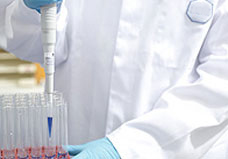| |
 |
|
|
|
|
|
|
Shock |
|
|
What is Shock
Shock is a life-threatening medical condition
whereby the body suffers from insufficient blood flow throughout
the body. Shock often accompanies severe injury or illness.
Medical shock is a medical emergency and can lead to other
conditions such as lack of oxygen in the body's tissues (hypoxia),
heart attack (cardiac arrest) or organ damage. It requires
immediate treatment as symptoms can worsen rapidly.
Medical shock is different than emotional, or psychological, shock
that can occur following a traumatic or frightening emotional
event.
What
are the types of shock?
Septic shock results from bacteria multiplying in the blood
and releasing toxins. Common causes of this are pneumonia,
intra-abdominal infections (such as a ruptured appendix) and
meningitis.
Anaphylactic shock is a type of severe hypersensitivity or
allergic reaction. Causes include allergy to insect stings,
medicines or foods (nuts, berries, seafood) etc.
Cardiogenic shock happens when the heart is damaged and
unable to supply sufficient blood to the body. This can be the end
result of a heart attack or congestive heart failure.
Hypovolemic shock is caused by severe blood and fluid loss,
such as from traumatic bodily injury, which makes the heart unable
to pump enough blood to the body.
Neurogenic shock is caused by spinal cord injury, usually
as a result of a traumatic accident or injury.
What are the causes of
shock?
There are several main causes of shock:
- Heart conditions (heart attack, heart
failure)
- Heavy internal or external bleeding, such as
from a serious injury
- Dehydration
- Infection
- Severe allergic reaction
- Spinal injuries
- Burns
- Persistent vomiting or diarrhea
What is
the treatment for shock?
Depending on the type or the cause of the shock, treatments will
differ. In general, fluid resuscitation (giving a large amount of
fluid to raise blood pressure quickly) with an IV in the ambulance
or emergency room is the first-line treatment for all types of
shock. The doctor will also administer medications such as
epinephrine, norepinephrine or dopamine to the fluids to try to
raise a patient's blood pressure to ensure blood flow to the vital
organs.
Tests (for example, x-rays, blood tests, EKGs) will determine the
underlying cause of the shock and uncover the severity of the
patient's illness.
Septic shock is treated with prompt administration
of antibiotics depending on the source and type of underlying
infection. These patients are often dehydrated and require large
amounts of fluids to increase and maintain blood pressure.
|
|
|
|
Shock - treatment of Shock, Shock types,
Disease medicines, Shock symptoms, Shock and Disease symptoms, Shock
symptoms Disease and diagnosis, Symptoms and Solutions, Signs and Symptoms,
type of Shock, cause common, common Shock, Shock List, causes list,
Infectious Shock, Causes, Diseases , Types, Prevention, Treatment and Facts,
Shock information, Shock: Definition, Shock names, medical Shock, medical
Shock and disorders, cell Shock, Shock Worldwide, Shock Research, Shock
Control, Shock Center, Digestive Shock Week, Information about Shock, causes
of different Shock, Shock Articles, Shock and conditions, Health and Shock,
Shock Patients, Shock and Sciences, causes of alzheimer's Shock, Shock
causes, alternative medicine heart Shock, body ailments, Shock medicines,
medical antiques, type of blood Shock |
|
|





